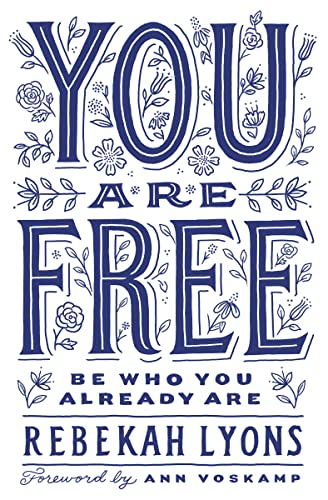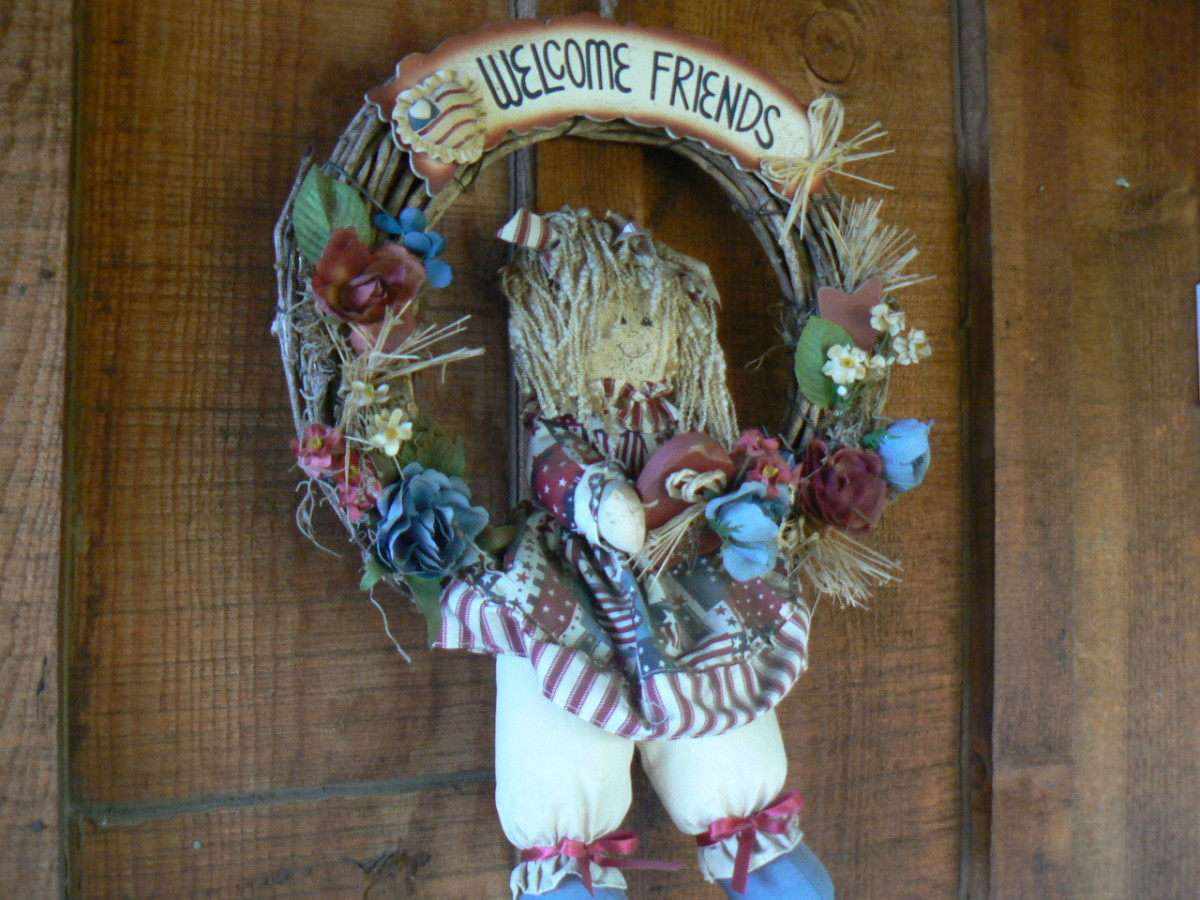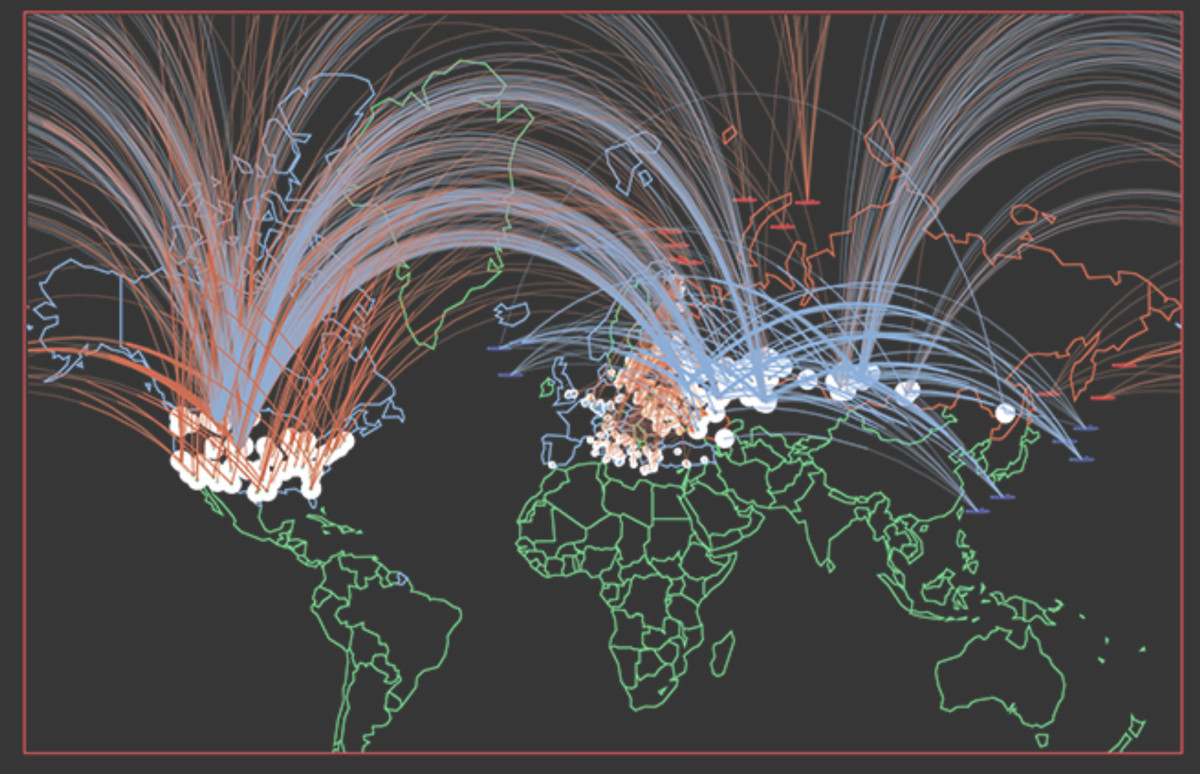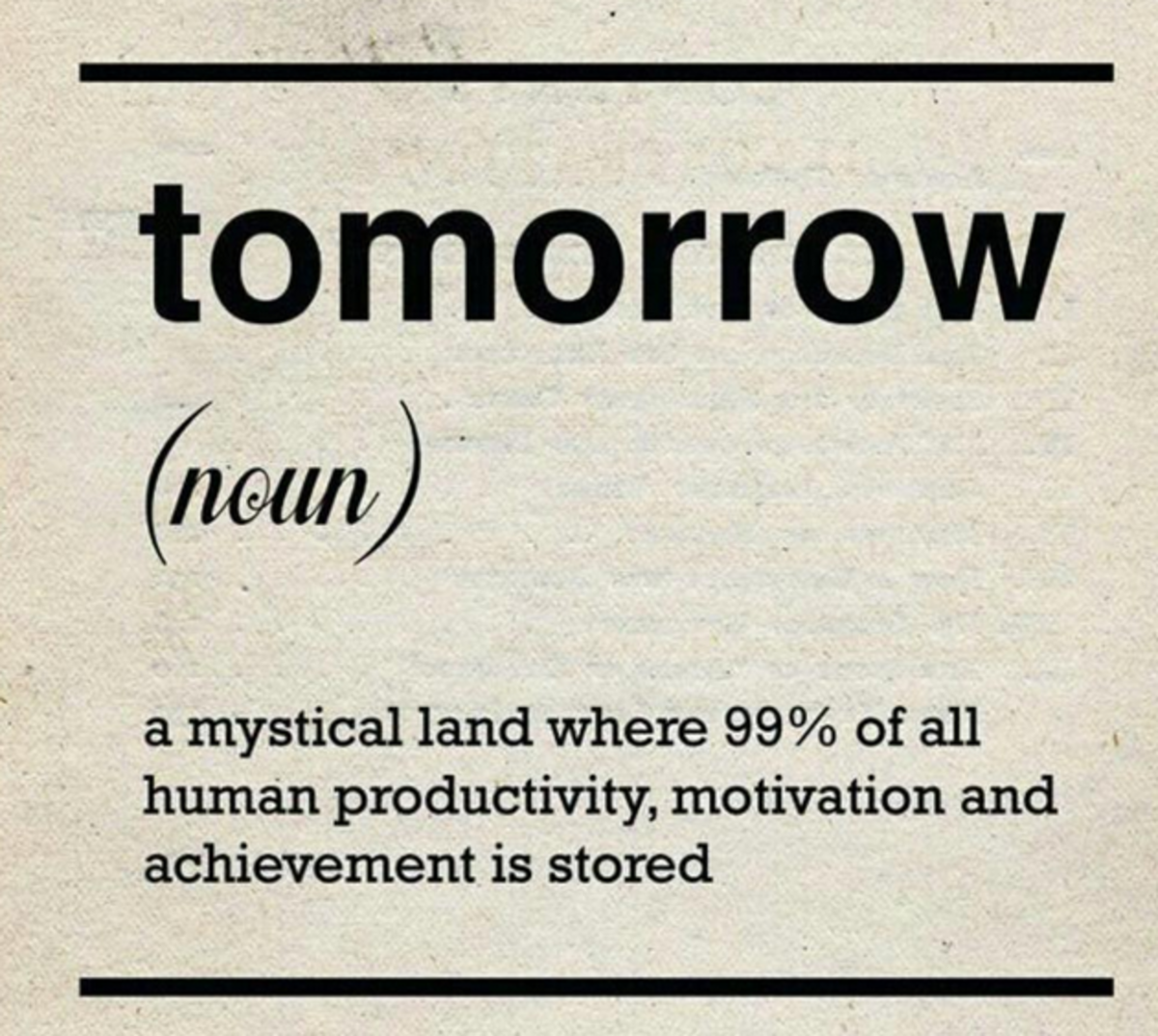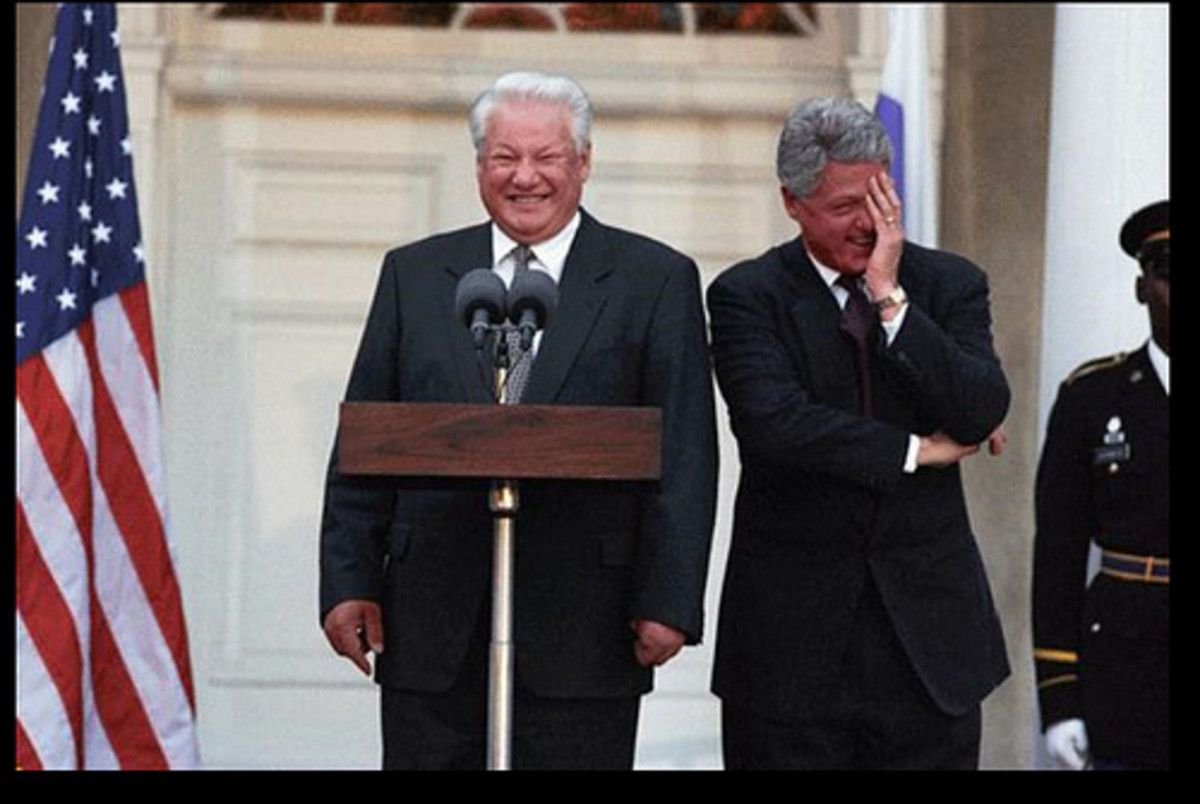The Procrastinating Perfectionist

Once again I try to avoid finishing this article. After all, how can I do this topic justice when many people have written and spoken about it before? What will be different that people haven’t already read? What if I miss something really important and can’t go back and change it? I really want to take on the challenge because I am the kind of person who must go to the depths of the most difficult, and yet I wonder—“will I be good enough?” So, I forge ahead in fear and trembling because facing my fear will be good for me, right? Procrastination and/or perfectionism torments most of us to some degree or other. For some of us the two are linked and we become the procrastinating perfectionist.
“Perfectionism, in psychology, is a belief that perfection can and should be attained. In its pathological form, perfectionism is a belief that work or output that is anything less than perfect is unacceptable.” (Wikipedia)With such a high level of expectation it is no wonder a person adopts procrastination as a way of coping with the anxiety that comes with starting or finishing any task, or making a decision. For it to be called procrastination, according to Schraw, Wadkins, and Olafson, the activity or action which we choose to do instead of the most important one “must be counterproductive, needless, and delaying.” (Wikipedia) There can be many beneficial reasons why a person would hold off in making a decision or starting a project but procrastination has to do with avoiding a task because we either don’t want to do it or it makes us anxious in some way.
Do you remember hearing the adage, “If you can’t say anything good then don’t say anything at all?” What about the one that has haunted me most of my life, “If you can’t do it perfectly, don’t bother trying?” Now, perhaps it was more insidious in its expression but the expectation was there nonetheless. To complicate matters, without being taught how to achieve this level of expected perfection, a person inevitably makes mistakes. When they are then told, “you should have known better!” the opportunity and a desire for learning or growth is lost.
I grew up with a physical disability and the common attitude was that I would never be able to do the normal things others did. So I felt the pressure to accomplish a task right the first time or there would never be another chance. Fortunately, I was blessed with the ability to visualize what something should look like or the ways I’d have to adapt to make it possible. I had youthful energy, ideology, creativity and a sense of invincibility to fight against these negative messages in an effort to achieve what was (or so I thought) the accepted norm. As I got older my problem-solving skills increased but I didn’t have as much energy to prove myself and my abilities. As a coping mechanism I adopted procrastination to counterbalance the need for perfection. I became more afraid of failure and tended to hold back and wouldn’t participate in things I thought I couldn’t handle. Of course, this developed behavior pattern doesn’t truly benefit anyone who really wants to participate in a full and meaningful life. So, what can be done to change?
Accept Your Humanity
First, accept your humanity—we need to realize that no one is perfect or is able to maintain perfection. It is okay to make mistakes because everyone does, but this does not make us a failure. In fact, we need to consider them as learning opportunities rather than mistakes, applying our skills in problem-solving and ingenuity to find ways that work. This requires a shift of thinking, turning a negative mindset into a positive one. By applying this positive mindset we will discover ways in which we can accomplish what we set out to do even if what works for us is different from everyone else.
For example: I was told that I’d never be able to drive a car. If I had acquiesced to the idea that I could only drive a car if I was able to operate the foot pedals, then I would never have pursued other options. In fact, I overcame that obstacle by getting hand controls and adapted by figuring out a way I could put the wheelchair into the back seat on my own. By not accepting what was the expected norm for the majority, I looked for ways that would work for me and was able to become independent and drive a car.
Accept Your Uniqueness
Second, accept yourself for who you are—this includes your imperfections, your differences and your own unique abilities. If we get caught in the trap of trying to fit in, to be like everyone else, we will lose out on the most important gift we’ve been given, our own unique self. God created us to be different from each other. Even when the Bible talks about spiritual gifts, it say that each person will have their own unique gift. As each person uses their own gift to work together with others in the church body, it will begin to function properly in the way it was intended. I believe that the only way we can make a difference in this world is if we use our difference to make it happen. What makes you different from everyone else?
I have always been equally left and right-brained, which enables me to see things from polar opposite perspectives. I can see the whole picture and understand the parts that make up the whole. I can apply logical thinking in a creative way and drive myself crazy in the process! While I now see this unique ability as a positive thing which I can use in constructive ways, I used to feel like an outsider in most circles. I never really fit into any one group because I could identify with all of them—I became a floater (a loner of sorts.) This became a positive when I worked with a group where there were often opposing viewpoints which could have created conflict and division. I was able to look at both sides and come up with a compromise both parties could agree to. I didn’t get caught having to chose sides—I used my ability to find a different way that worked for everyone.
“Imperfect Action is better than no action at all”
Accept Your Responsibility
Third, accept responsibility for your own choices, intentions and goals. It is so easy to blame our circumstances, those around us, our job, our lack of income, our children, our health, our parents, or anything other than ourselves for our inability to get to where we want to be in life. This simply keeps us in a victim mentality in which we feel unable to make choices according to who we really are and what we believe is right for us. Once we start to take responsibility for our own decisions and actions, we can set realistic goals, and make a plan that will be possible for us to follow.
For instance, I am easily distracted and find it very hard to focus with noise in the background. Because of this I put off doing things, like writing, because I can’t concentrate and I use the noise as an excuse to not do it. When I took responsibility for my own actions (and stopped expecting everyone else around me to change), I found a quiet room to be by myself, used earplugs to shut out even the smallest noises coming from outside, and worked on my laptop in a nice cozy bed. I took responsibility for my own needs and found a way to work that would meet them. My husband, on the other hand, works best with music—it inspires him and the noise helps him focus. So, he finds a way to accommodate his needs by working at a time when noise doesn’t bother anyone or uses a headset at the computer.
One way isn’t any better than the other, we have just figured out what works for us as individuals, and you can too. Try to find the time of day when you are most alert to do the tasks that require the most focus. You’ll get more done in fifteen minutes of “prime” time than in an hour at another time of day. If you need silence to do your work, try to find a quiet place without distractions. If you need noise, find a time and a place where it won’t be a bother to anyone. Find a way to meet your needs and you won’t be so quick to procrastinate, accept that you don’t need to get it perfect and the acitivity/action might even become fun!
Conclusion
I’m not procrastinating any longer and am carrying out my intent to get it done by a certain time and I’m meeting the deadline as we speak. I am not a fast writer because I need time to process what I’m trying to say. Therefore, I set time aside to think, ponder and meditate on possible content. So, I try to remember the 3-As: to Accept my humanity, Accept my uniqueness, and Accept my responsibility so I can enjoy the process of creating something without the pressure to be something I am not. I hope this helps you as well and that you can step into the freedom of being yourself and adapting your style to whatever you need to get done.
© 2010 Flo Belanger

